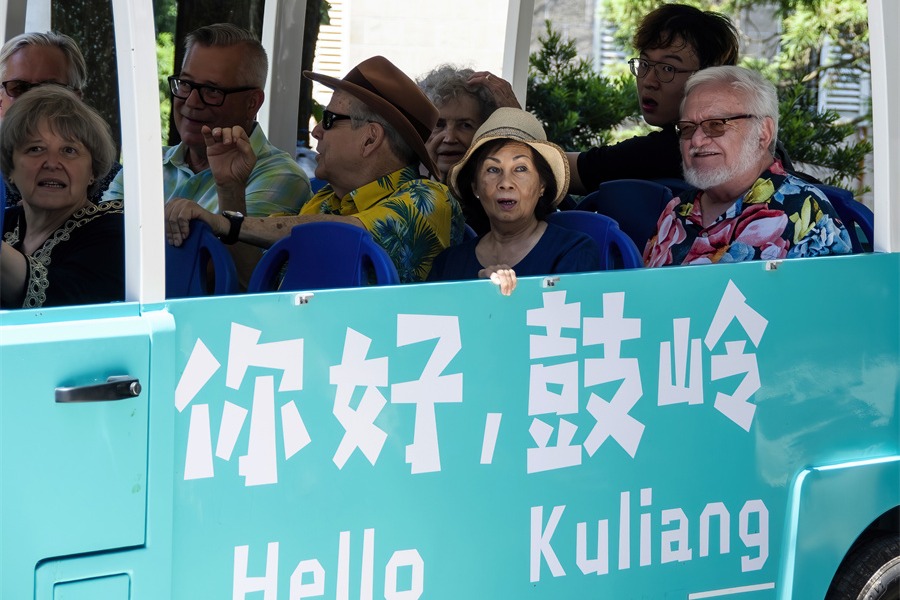G7 wrong to blame China on Pelosi trip
By XU WEIWEI in Hong Kong | China Daily | Updated: 2022-08-10 07:26

It's the US that should be criticized over provocative Taiwan visit, experts say
The G7 group of industrialized nations should criticize the United States as a troublemaker for allowing its top lawmaker, Nancy Pelosi, to provocatively visit China's Taiwan region, analysts say.
Instead, the way the Group of Seven responded to the trip-by criticizing China for "provocation "rather than the speaker of the US House of Representatives-was "unfair and unreasonable" in the extreme, said Colin Mackerras, professor emeritus at Griffith University in Australia.
"They should remember that Taiwan is not recognized as a state by the international community, and it is not a member of the UN. It is they (the G7), not China, who are provocative," he said of Pelosi's arrival on the island on Aug 2 as part of an Asian tour.
Mackerras said what was most alarming is that the US seems to be increasingly turning its back on commitments made to China long ago.
US President Joe Biden, "for instance, was the first US president actually to invite a Taiwan representative to his inauguration", he said. "I think these people should be very careful how they treat China, which will not tolerate being regarded as an inferior forever," he added.
Munshi Faiz Ahmad, a former chairman of the Bangladesh Institute of International and Strategic Studies, said the G7's blaming China is very shortsighted. The real blame should lie with the US for provoking the issue without considering the concerns of China. Ahmad also said it seems that the US has manipulated the G7 into toeing its line.
In addition, "Pelosi's going to Taiwan at this time is particularly significant and provocative," he said.
"Although the US government, especially the White House and others, tried to suggest that they were not encouraging this visit, they did not try hard enough to stop the visit either," he said.
Ahmad praised China's conduct, saying Beijing "has sent an adequate message that, if anybody tries to hurt China's core interests or to challenge China's sovereignty, China is not going to keep quiet or tolerate such behavior".
Salman Bashir, a former Pakistani ambassador to China, said the visit, despite the loud and strong objections from China, has fueled China-US tensions. "The visit was unnecessarily provocative, given the unambiguous and well-defined Chinese red lines on Taiwan," he said.
Karori Singh, emeritus fellow and former director of the South Asia Studies Center at India's University of Rajasthan, said deviation from the one-China policy is "most unviable and untenable".
Singh said "Every country has its sovereign right to conduct a military exercise in its own territory."
Analysts also note that the top US lawmaker's Asia tour should be seen as part of a US policy shift to contain China's growing influence.
Imtiaz Gul, executive director of the Center for Research and Security Studies in Pakistan, said the Biden administration has been implementing anti-China moves. "Pelosi's visit is part of it and it is aimed at provoking China," he said.
It is contrary to the conventional one-China policy of the US, said Singh. "It will have destabilizing effect in Asia," he said.
























